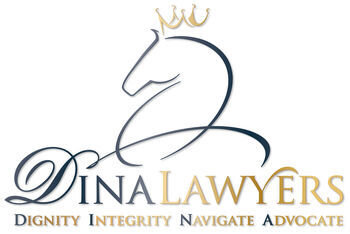Best Job Discrimination Lawyers in Sydney
Share your needs with us, get contacted by law firms.
Free. Takes 2 min.
List of the best lawyers in Sydney, Australia
About Job Discrimination Law in Sydney, Australia
Job discrimination occurs when an employee or potential employee is treated unfairly due to specific attributes protected by law. In Sydney, and broadly in Australia, job discrimination is primarily governed by both state and national laws designed to create a more inclusive and fair workplace, regardless of factors such as race, gender, age, disability, religion, sexual orientation, or other discriminatory bases.
The aim of these laws is to prevent unfair treatment and ensure that every worker has an equal opportunity to succeed based on their merit and performance. In Sydney, these laws are enforced under the framework of New South Wales' Anti-Discrimination Act, as well as federal legislation like the Fair Work Act and the Disability Discrimination Act.
Why You May Need a Lawyer
There are numerous situations where consulting a lawyer can be beneficial if you face job discrimination in Sydney. Some common scenarios include:
- Being unfairly dismissed or demoted based on your age, gender, race, or other protected characteristics.
- Facing harassment or a hostile working environment due to your personal attributes.
- Experiencing retaliation or negative treatment after making a complaint about discrimination.
- Being denied reasonable adjustments for a disability that impacts your work.
- Having an employment opportunity, such as a job application or a promotion, denied based on discriminatory reasons.
Engaging a lawyer with experience in job discrimination can help you understand your rights, potentially resolve the issue outside of court, or represent you in legal proceedings if necessary.
Local Laws Overview
Job discrimination laws in Sydney are primarily influenced by both state and federal legislation:
- Anti-Discrimination Act 1977 (NSW): This state legislation is specific to New South Wales and prohibits discrimination in employment on various grounds including race, sex, age, disability, and transgender status.
- Fair Work Act 2009: This federal law provides a framework for workplace relations which prohibits unfair treatment and discrimination for various protected characteristics.
- Racial Discrimination Act 1975: A federal law that prohibits discrimination on the basis of race, color, descent, or national or ethnic origin.
- Sex Discrimination Act 1984: This federal law deals with discrimination based on sex, marital or relationship status, family responsibilities, and pregnancy or potential pregnancy.
- Disability Discrimination Act 1992: Provides protection against discrimination based on disability and imposes obligations to make reasonable accommodations for individuals with disabilities.
These laws collectively aim to protect workers from discrimination and promote equality in the workplace.
Frequently Asked Questions
What constitutes job discrimination?
Job discrimination involves unfavorable treatment based on attributes such as race, gender, age, religion, disability, sexual orientation, or other protected characteristics.
How can I prove job discrimination?
Evidence may include direct statements, employment records, witness testimonials, or policies showing discriminatory practices. Documentation and professional legal advice can assist in building a strong case.
What steps should I take if I experience job discrimination?
Document the incidents, report the matter through internal channels, seek support from relevant organizations, and consider legal advice to understand your rights and options.
Is it illegal for employers to retaliate against discrimination claims?
Yes, retaliation against employees who make legitimate discrimination complaints is illegal under both New South Wales and federal laws.
What is the role of the Australian Human Rights Commission?
The Australian Human Rights Commission is a government body that investigates and resolves complaints about unlawful discrimination.
Are there time limits for making a job discrimination claim?
Yes, strict time limits apply, such as 21 days for unfair dismissal claims under the Fair Work Act. Legal advice should be sought promptly to avoid missing these deadlines.
Can I file a complaint anonymously?
While complaints can be initiated confidentially, anonymity in the process may be challenging as it may impact the investigation's effectiveness.
Does job discrimination law apply to job interviews?
Yes, anti-discrimination laws protect job applicants as well and prohibit discriminatory questions or practices during the recruitment process.
What are the potential outcomes of a successful job discrimination claim?
Outcomes can include compensation, reinstatement, policy changes within a company, or other remedies to rectify the discriminatory conduct.
Can workplace policies override discrimination laws?
No, workplace policies must comply with applicable discrimination laws and cannot legally circumvent employee protections against discrimination.
Additional Resources
In Sydney, several resources and organizations can provide support and information regarding job discrimination:
- Australian Human Rights Commission
- Anti-Discrimination NSW
- Fair Work Commission
- Community Legal Centres NSW
- Legal Aid NSW
These bodies offer guidance, educational materials, and in some cases, direct support for individuals pursuing discrimination claims.
Next Steps
If you believe you have experienced job discrimination, consider the following steps:
- Consult with a qualified lawyer specializing in employment law in Sydney to evaluate your case.
- Gather and preserve any evidence related to the discriminatory conduct.
- File a complaint with a relevant authority, such as the Fair Work Commission or Anti-Discrimination NSW, if advised by your legal representative.
- Seek support from relevant community or advocacy groups that specialize in employment rights.
Taking these steps can help ensure that you are informed of your rights and can pursue any remedies available to you effectively.
Lawzana helps you find the best lawyers and law firms in Sydney through a curated and pre-screened list of qualified legal professionals. Our platform offers rankings and detailed profiles of attorneys and law firms, allowing you to compare based on practice areas, including Job Discrimination, experience, and client feedback.
Each profile includes a description of the firm's areas of practice, client reviews, team members and partners, year of establishment, spoken languages, office locations, contact information, social media presence, and any published articles or resources. Most firms on our platform speak English and are experienced in both local and international legal matters.
Get a quote from top-rated law firms in Sydney, Australia — quickly, securely, and without unnecessary hassle.
Disclaimer:
The information provided on this page is for general informational purposes only and does not constitute legal advice. While we strive to ensure the accuracy and relevance of the content, legal information may change over time, and interpretations of the law can vary. You should always consult with a qualified legal professional for advice specific to your situation.
We disclaim all liability for actions taken or not taken based on the content of this page. If you believe any information is incorrect or outdated, please contact us, and we will review and update it where appropriate.

















